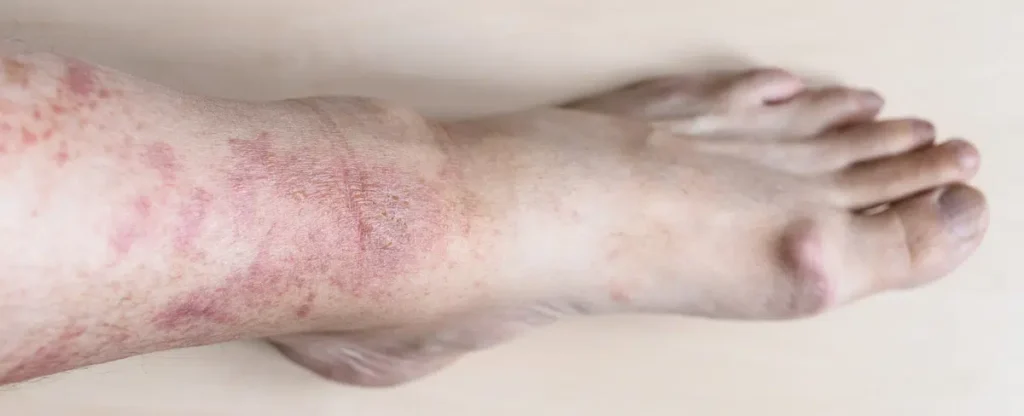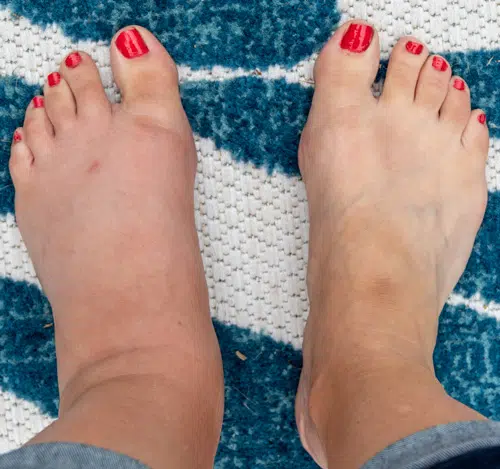Lymphedema Cellulitis treatment


What is Cellulitis?
Cellulitis is a common yet potentially serious bacterial skin infection that causes the skin to become red, swollen, warm, and painful. While it often affects the lower legs, cellulitis can also develop on the face, arms, and other areas. The infection typically occurs when bacteria enter the body through a break in the skin. If left untreated, cellulitis can spread to the lymph nodes and bloodstream, leading to more severe complications.
How Does Cellulitis Develop in Lymphedema Patients?
Lymphedema significantly increases the risk of developing cellulitis. Lymphedema causes fluid to accumulate in areas where lymph nodes or vessels are damaged, stretching the skin and making it thinner. This creates an ideal environment for bacteria to enter and thrive in the swollen tissue. Although lymphedema does not always result in cellulitis, having either condition can worsen the other. For instance, severe cellulitis can further damage the lymphatic system, leading to secondary lymphedema, and lymphedema hinders the body’s ability to fight infection, increasing the risk of cellulitis.
What Happens if Cellulitis is Left Untreated?

If left untreated, cellulitis can become life-threatening as the infection spreads throughout the body. In some cases, it can lead to severe complications such as bone infections, gangrene, or sepsis. Symptoms of cellulitis include:
- Red or swollen skin
- A rapidly spreading rash or sore
- Abscesses containing pus
- Tender, warm skin
- Dizziness or lightheadedness
- Fever and chills
How to Treat Cellulitis for Patients with Lymphedema
Cellulitis can be treated with oral antibiotics for most patients. In more severe cases, intravenous antibiotics may be necessary. Topical antibacterial ointments do not penetrate deeply enough to be effective for cellulitis treatment. For patients with lymphedema-related recurrent cellulitis (two or more infections annually), prophylactic oral antibiotics may be prescribed to prevent future infections.
Compression therapy plays a crucial role in managing lymphedema and preventing cellulitis recurrence. At Innovative Therapy PC, we offer custom-fit compression garments in collaboration with Mediven® to help reduce swelling and promote healthy lymphatic flow. Consistent use of these compression garments, paired with proper cleaning, can prevent bacterial infections and improve overall lymphatic health.
In addition to compression therapy, improving your nutrition with flavonoid-rich foods (like citrus, berries, and onions) and supplements such as Vitamin C, Vitamin E, and Zinc can strengthen your immune system and support skin healing.
Exercise and Movement for Lymphedema Patients
Exercise and gentle movement are essential for pumping lymph fluid more effectively through the body. Regular activity helps maintain flexibility, strengthen bones, and improve emotional well-being. At Innovative Therapy PC, we encourage patients to incorporate light physical activity into their routine, combined with the use of custom compression garments, for optimal lymphedema management.
Breaking the Vicious Cycle of Lymphedema and Cellulitis
The relationship between lymphedema and cellulitis is often described as a “vicious cycle,” with each condition making the other worse. Proper lymphedema management is one of the most effective strategies to prevent cellulitis and reduce the risk of recurrence. At Innovative Therapy PC, we offer personalized care, including custom Mediven® compression garments, to help you manage lymphedema effectively and minimize the risk of cellulitis.
By focusing on early intervention and consistent treatment, we help our patients break the cycle and maintain a healthy, active lifestyle.
